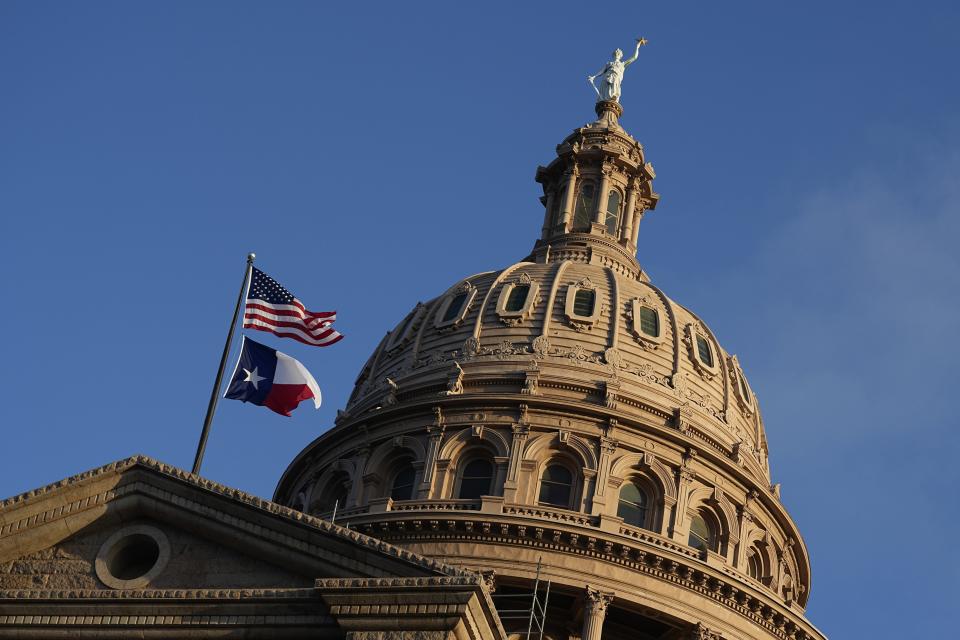Opinion: The Legislature's shameless and unconstitutional court-packing plan
As any Texas voter knows, we elect our judges—and, except for our highest courts (the Supreme Court and the Court of Criminal Appeals), we elect them locally. That’s true not just for trial courts, but for our fourteen intermediate appellate courts, too. For instance, the “Third” Court of Appeals here in Austin, which hears appeals from district courts in Travis County and 23 surrounding counties, is staffed by six Justices chosen by voters across those 24 jurisdictions.
Three bills recently introduced in the Texas Legislature would take some of the most important cases away from locally elected judges. Between them, SB1045, HB3166 and HJR139 would create a new “Fifteenth” Court of Appeals to hear appeals in most lawsuits against the state or its officers. And although the new court would also sit in Austin, its judges would be elected on a statewide basis. The bills would thus take state-involved appeals away from judges elected in more Democratic parts of the state in favor of judges elected by all Texas voters—who haven’t chosen a Democratic candidate for statewide office since 1994.

Given how adamantly Republicans have opposed “court-packing” at the federal level in recent years, the hypocrisy is more than a little galling. But these proposals are more than just hypocritical; they would also violate the Texas Constitution, to say nothing of the endless (and costly) logistical and litigation headaches they would create. Because there is no compelling reason to go down that path, the Legislature would be well-served to reject these proposals—and, failing that, Governor Abbott should veto them.
Article 5, Section 6 of the Texas Constitution provides that “[t]he state shall be divided into courts of appeals districts, with each district having a Chief Justice, two or more other Justices, and such other officials as may be provided by law.” It also specifies that each “Court of Appeals shall have appellate jurisdiction co-extensive with the limits of their respective districts,” and that its judges “shall be elected by the qualified voters of their respective districts at a general election.”
Since this provision was adopted in 1891, it has been understood to require geographically subdivided courts of appeals—reflecting the especial significance, in such a large and heterogeneous state, of promoting and preserving local political control over local courts. Obviously, these bills run afoul of that mandate.
They’re also a solution in search of a problem. First, there is no argument that Austin’s current intermediate appeals court is overwhelmed by its workload. Even if it was, the far easier solution is to give it more judges. The Third Court still has fewer than half of the judges of Texas’s largest intermediate court—Dallas’s Fifth Court of Appeals, which has 13.
Nor is there any indication that the Third Court’s reversal rate is meaningfully higher than its peers. And again, even if it was, that’s easily addressed by the fact that its decisions are subject to appellate review, whether by the Supreme Court in civil cases or the Court of Criminal Appeals in criminal cases.
These bills aren’t just unnecessary; they’d also create endless and expensive headaches for litigants, judges, and court staff. Sorting out which cases go to the new court versus which remain before the old one would become a cottage industry unto itself—and would needlessly complicate the very cases in which the bills purport to streamline judicial review.
Finally, although the bills are quite clearly targeted at Democratic jurisdictions, they would also take power away from rural areas regardless of their political leanings. After all, if judges have to run statewide campaigns to win election to the Fifteenth Court, they’ll go where the money is—to Texas’ cities. Thus, the Fifteenth Court would end up resembling the Supreme Court—staffed by Republican judges from Austin, Houston, and Dallas, even though, left to their own devices, the voters of those cities may well have picked someone else.
Ultimately, there’s no good reason for this kind of transparently partisan court-packing—and plenty of bad ones. These bills should not pass.
Vladeck holds the Charles Alan Wright Chair in Federal Courts at the University of Texas School of Law.
This article originally appeared on Austin American-Statesman: Opinion: The Legislature's shameless and unconstitutional court-packing plan

